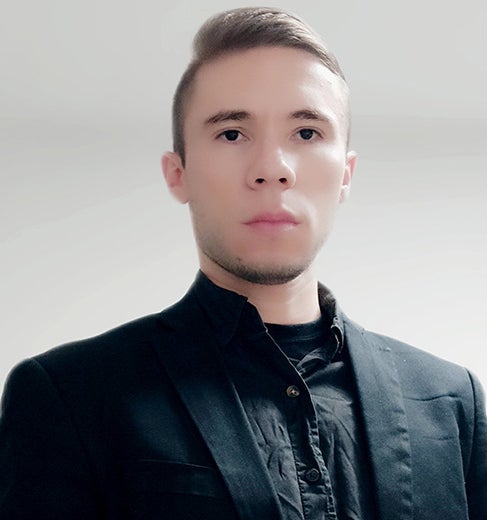2023-24 Linda Hall Library Fellows
Sun Cultures in Early Modern England
Sophie Emma Battell is Senior Lecturer in English Literature at the University of Zurich. From February–June 2023, she is on sabbatical and a Research Fellow at the Netherlands Institute for Advanced Study in Amsterdam. She researches early modern literature and culture. Her first book, On the Threshold: Hospitality in Shakespeare’s Drama, is forthcoming with Edinburgh University Press in 2023.
At the Linda Hall Library, Battell will work on her second monograph, Sun Cultures in Early Modern England. This project investigates how the Sun was understood in the English Renaissance. It argues that the cosmological shift inaugurated by heliocentrism and the Copernican model of the solar system was accompanied by a range of cultural responses in which the Sun became a contested object. During her fellowship, Battell will consult the Library’s extensive collection of literature on premodern solar science, including canonical publications by Copernicus and Kepler and lesser-known works on sunspots, eclipses, and sundials. She will also examine prints, drawings, and visual representations of the Sun.
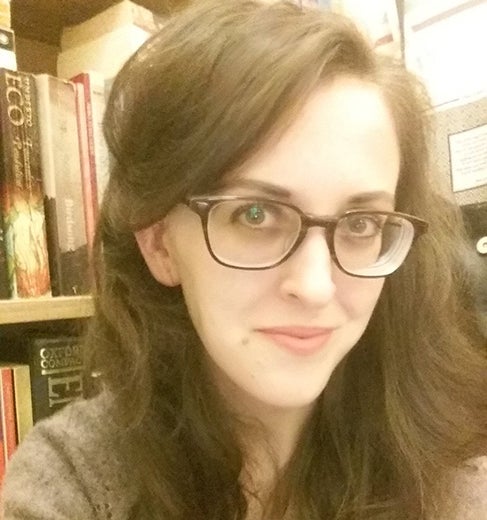
Competition, Prejudice, and Art in Color Photography
Michael Berkowitz is Professor of Modern Jewish History at University College London. He is exploring the technological and scientific origins, evolution, and commercial and cultural histories of three leading processes of color film (before the digital age)—Kodachrome, Agfacolor, and Polaroid. This project continues and complements research surrounding Jews in photography's history that he has pursued for several years, most recently at Philadelphia's Science History Institute.
Berkowitz has been struck by the relatively limited scope and general disregard for color photography in art historical discourses and exhibitions—despite the immense popularity of color photography among the public at large. He intends to develop how each process (and its successors) was perceived, realized, and received as art. His hypothesis is that beyond the merits of their successive products, the reputations of color films as art media were influenced by perceptions of corporate cultures, as well as political and social forces. In medicine, for example, it seems that Kodachrome was most highly valued for diagnoses requiring color accuracy.
Berkowitz also plans to explore the history of the American Museum of Photography in Philadelphia (1941–1958) which combined scientific and artistic approaches to photography with an unarticulated concern for diversity among photography's scientists and practitioners. Relatedly, he wishes to contextualize the outsized attraction of Jews to color photography, in a general field—photography—in which they have had a disproportionate influence relative to their numbers. The wealth of material at the Linda Hall Library will afford him the chance to investigate the striking disparity between the transformation of sensory experience of human culture, through color photography of the 1930s to the 1990s, versus the limited extent to which it has become part of the academic canon and accepted art scene.
Photo: Frank Dabba Smith
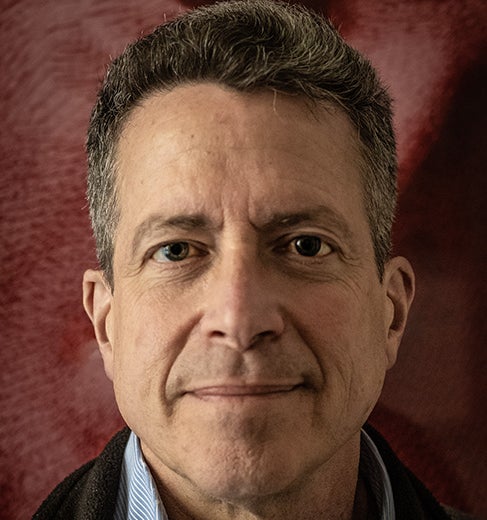
Oleksiy Boldyriev is a research fellow in cellular physiology and biophysics at Bogomoletz Institute of Physiology of NAS of Ukraine and Assistant Professor of Biomedicine and Neuroscience at Kyiv Academic University. He is involved in the experimental investigations of ion channels, receptors, and RNA biology, and he earned his PhD in biophysics in 2016. He studies the history of biomedicine in Ukraine and Eastern Europe during the first half of the twentieth century. Boldyriev received the Federation of Neuroscience Societies History Project Grant in 2016 to study the life of Volodymyr Pravdych-Neminsky, the pioneer of mammalian electroencephalography (EEG).
Boldyriev’s research interests lie in social cataclysms’ impact on the fates and research of experimental biologists, especially in Ukrainian quasi-colonial conditions. He works on embryologist Boris Balinsky, the history of electrophysiology and cell biology in Kyiv, political repression against scientists in Stalin’s time, and the “Pavlovian Session” of 1950. Boldyriev is creating a database of Ukrainian scientists who were active during the interwar period to discover victims of Stalin’s repressions and build a prosopographic portrait of researchers during that period. He is also an active science communicator in Ukraine, where he edits the popular science platform Moya nauka (My Science) and presents lectures at many science communication events.
At the Linda Hall Library, Boldyriev will study international biomedical publications to elucidate the impact of Kyiv research groups under the leadership of Oleksiy Krontowsky (1885–1933) on the development of modern cell culture techniques. Krontowsky was recognized worldwide in his time for measuring isolated cell biochemical properties, searching for better cultivation media in scarce economic conditions, and simultaneously developing methods that used cultivated cells to study infectious and oncologic diseases. The project will determine the influence of this research school in contemporary cell biology, especially on investigations of culturing media acidity and composition. In addition, Boldyriev will review publications written by Krontowsky’s disciples, including a number of prominent women in science. The interplay between events of social history of science, historical cataclysms, and scientific research process per se will be analyzed. Boldyriev hopes that this project will increase the visibility of the Krontowsky research school among the biomedical science community, as well as the general public, both in Ukraine and around the world.
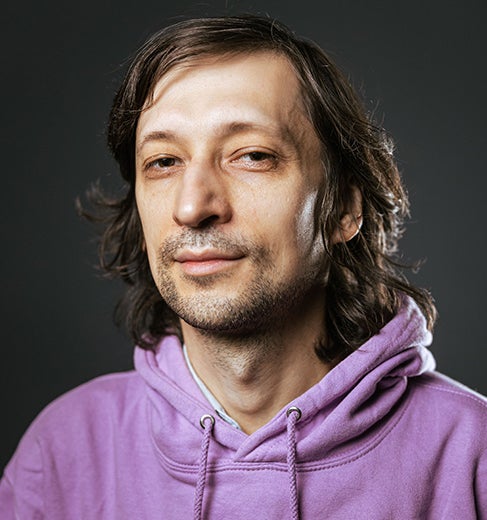
Yulia Cherniavskaia is a historian of Modern Europe who specializes in postwar Soviet history. She received an MA in History and Memory Studies from the European University at St. Petersburg in 2017 and is currently a doctoral candidate at Rutgers University. Her research seeks to understand the so-called “New Soviet Man” and Soviet subjectivity in late socialism more broadly, as well as popular science and the relation between knowledge production and the production of subjects.
Cherniavskaia’s dissertation explores the popularization of science and humanistic knowledge in the postwar USSR. It focuses on the Soviet Society for the Dissemination of Knowledge (Znanie), a mass-education institution that disseminated new knowledge to Soviet citizens through public lectures and popular science brochures. In terms of sheer effort, geographical scope, and allocated resources, Znanie was one of the largest organizations for the popularization of knowledge in the world, and its activities impacted millions of Soviet people. This project examines how Soviet ideologists and Znanie activists conceived of popularly available science as a means to mold all Soviet citizens into modern, educated subjects—seen as a key prerequisite for a future communist society. Znanie activists were often motivated by a belief in the liberating and progressive nature of science and its ability to transform people and societies. Accordingly, Cherniavskaia’s research examines the place of knowledge and science in Soviet ideology and explores how practices of knowledge production and dissemination produced Soviet subjects while remaining aware that the latter was explicitly non-liberal. By tracing Znanie’s impact across the USSR, this work situates popular education as central to Soviet subjectivity and its lived experience after the Second World War.
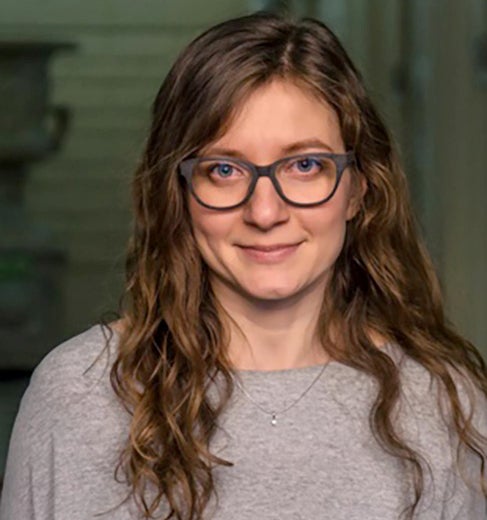
Spontaneous Generation in the Nineteenth-Century U.S. Culture
Sylvan Goldberg is Associate Professor of English at Colorado College, where he teaches and writes on U.S. literature of the long nineteenth century, western American literature, and the environmental humanities. His recent essays can be found in Western American Literature, ESQ, and Climate in American Literature and Culture. He is completing a book manuscript on spontaneous generation in nineteenth-century U.S. culture.
At the Linda Hall Library, he will pursue further research for that book manuscript, currently titled Generation: Crisis, Continuity, Sentiment, and Science in Nineteenth-Century America. Generation uses the pre-Darwinian biological theory of spontaneous generation to look at overlaps in the discourses of science and sentimentalism in the nineteenth-century United States as each sought to conceptualize community, futurity, descent, and identity. This project seeks to address a gap in previous histories of the life sciences and evolutionary biology in the U.S. by expanding accounts of the ways in which non-Darwinian life sciences influenced American literature and culture in the nineteenth century. Spontaneous generation intersects with numerous spheres of nineteenth-century cultural life, including the secularization of human and natural histories, theories of race and polygenesis that imagined humans to be not just distinct races but different species, and conceptions of natural resources and emergent fossil fuel economies.
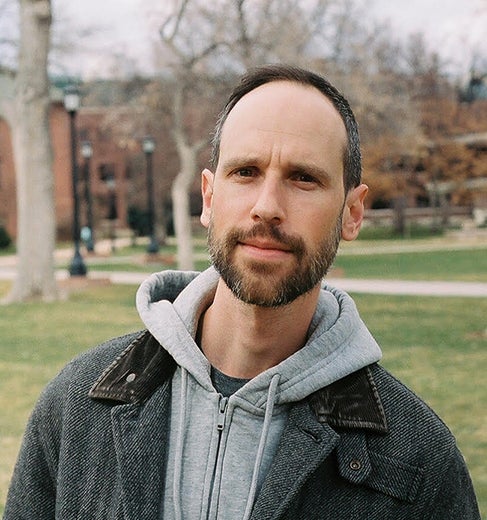
Christopher Halm is a trained history and chemistry teacher who studied at Heidelberg University and gained his PhD in the history of science at the University of Regensburg. He won the newcomer award of the German Chemical Society’s history work group for his thesis on agricultural chemistry in the eighteenth century. He is an alumnus of the Heinrich-Böll-Foundation and received research fellowships from the Science History Institute in Philadelphia, the Deutsches Museum Munich, and the Leibniz Research Alliance “Value of the Past.”
Halm is interested in the history of chemistry across the centuries. He has a strong interest in the historiography and epistemology of spaces of knowledge production, especially the laboratory, the field, and the museum. His new book project, influenced by the material turn, deals with the technocultural global value of moon rocks. Through an examination of Linda Hall Library’s archived exhibitions, The Face of the Moon (1989-1990) and Mapping the Moon (2019), Halm will work on a longue durée history of lunar exploration and, at the same time, investigate a part of the institution's past.
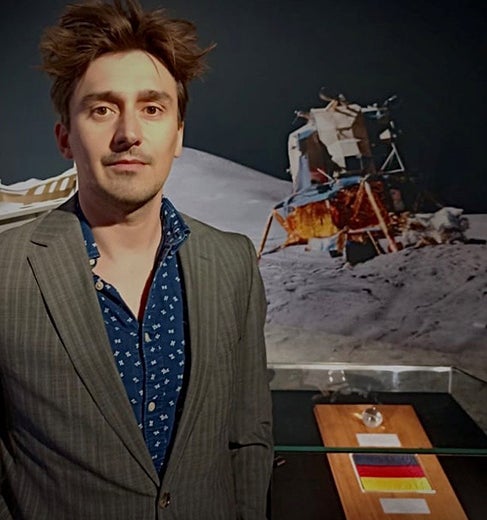
Quantum States, Quantum Entanglements: China, the U.S., and the Global Race for Quantum Supremacy
Roger Hart is a leading scholar of science and technology in contemporary (twenty-first century) China. His current research focus is the Second Quantum Revolution (namely quantum communication, quantum computing, and quantum sensing), especially the quantum internet, an area in which China has recently surpassed the U.S. He is Professor of Chinese History and Director of the China Institute at Texas Southern University. His previous appointments include the Wilson Center, Seoul National University, University of Texas at Austin, University of Chicago, Institute for Advanced Study, Stanford University, University of California at Berkeley, and Harvard University. His previous awards include Fulbright U.S. Scholar, American Council of Learned Societies, National Endowment for the Humanities (NEH), and Andrew W. Mellon Postdoctoral Fellowship in the Humanities. His publications include two research monographs, The Chinese Roots of Linear Algebra (Johns Hopkins University Press, 2011) and Imagined Civilizations: China, the West, and Their First Encounter (Johns Hopkins University Press, 2013). He earned his BS in mathematics from MIT, MS in mathematics from Stanford, and his PhD in Chinese history and history of science from UCLA. He has lived in China for six years; his modern Chinese is near-native, and his classical Chinese is excellent. He has spent the last three years studying the newly emerging field of quantum information science. His website is www.rhart.org.
As the Linda Hall Library’s 2023-24 NEH Postdoctoral Fellow, Hart will conduct research for his third monograph, Quantum States, Quantum Entanglements: China, the U.S., and the Global Race for Quantum Supremacy. This project studies the intertwined development of science and the state in contemporary China from a comparative and global perspective. Sources for this project include hundreds of scientific articles, Chinese-language materials, and interviews. Hart’s approach is interdisciplinary, following important recent studies in the history, philosophy, sociology, and anthropology of science. This project will demonstrate the importance of international understanding and cooperation in science.
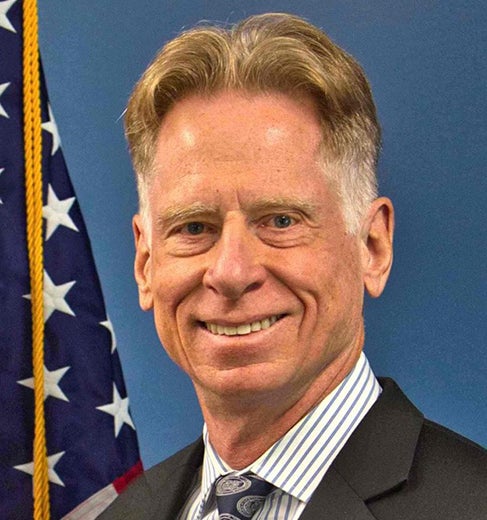
Monsieur and Madame Lavoisier and the Arsenal Laboratory
Liz Kambas is a PhD candidate studying the history of eighteenth-century French chemistry at Indiana University Bloomington. Her dissertation, and project focus at the Linda Hall Library, concerns Monsieur and Madame Lavoisier and their collaborators within the Arsenal Laboratory. She is especially intrigued by the marital and scientific aspects of collaboration between the Lavoisiers. The vast holdings at the Linda Hall Library will further bolster auxiliary foci such as the development of chemical nomenclature, laboratory instruments, and artwork reflecting the laboratory space.
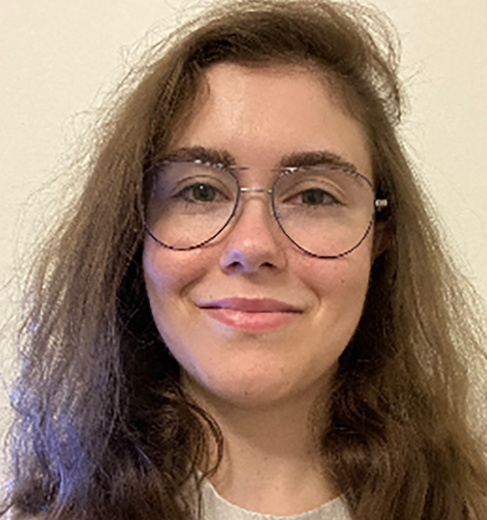
Social Seams: The Technoculture of Early Welders
Emy Kim is Assistant Professor of Artifacts Conservation at Queen’s University in Canada, where she instructs MA students in the history, technology, and conservation of many three-dimensional materials. Her interest in modern metals led her to the Institute for the History and Philosophy of Science and Technology (IHPST) at the University of Toronto, where she is a PhD candidate. Previously, she earned a BA in art history from Princeton University, an MA in art history from Williams College, and an MA in art conservation from the Institute of Fine Arts at New York University.
Kim’s dissertation explores the culture and craft of oxyacetylene and electric welding in the early twentieth century. Although this unique craft was important in the production of bicycles, automobiles, and railways, the practice of welding has rarely been a focus for historians of technology. To recognize the significance of welders, their culture, and expertise is to acknowledge them as builders of the early twentieth century. The holdings of the Linda Hall Library will aid in understanding the culture of early welding. Manuals and trade periodicals provide key descriptions of the practice of welding as it stood at the time, reveal early conceptions about the technology of oxyacetylene and electric welding, and include the voices of welders and engineers who were concerned about the professionalization and advancement of a new craft.
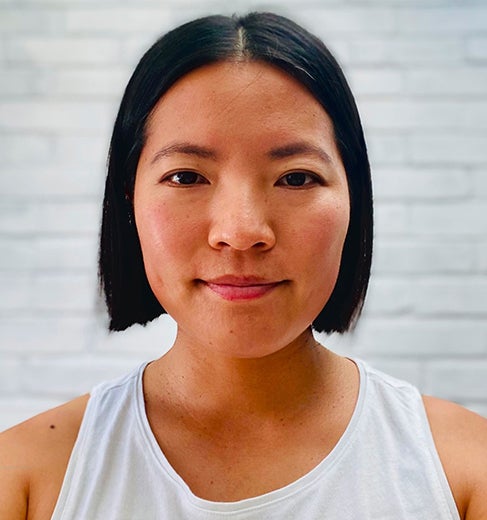
Crimean Land Under Colonial Rule
Martin-Oleksandr Kisly was born in Simferopol, Crimea. He is a historian of Crimea and Crimean Tatars, focusing on the Soviet and post-Soviet periods. In 2021 he defended a PhD dissertation entitled “Crimean Tatars’ Return to the Homeland in 1956–1989.” His research interests include oral history, memory, trauma, identity, migration, and colonialism. Kisly is an alumnus of the Fulbright Research and Development program (2017, University of Michigan, Ann Arbor) and one of the authors of “Crimea: History and People,” an online course created by Ukrainian Institute EdEra.
Kisly is currently working on a book that will investigate how the Crimean land was colonized after the Russian annexation of Crimea in 1783. During his fellowship, Kisly will review Linda Hall Library holdings that shed light on how empires were dealing with nature and the environment in their colonies. For the Russian Empire, Crimea was a little Orient: an unknown land with a different climate, flora, and fauna, inhabited by Muslim people. After the annexation, many travelers and scientists went to discover new territories. Among them was Peter Simon Pallas, a Prussian zoologist, and botanist working for the Russian government. Usually, they were acting like an agent of empire. The Linda Hall Library’s collections will allow Kisly to focus on the natural and environmental history of colonized lands. A special emphasis on empire and science will help illuminate how scientists described Crimea.
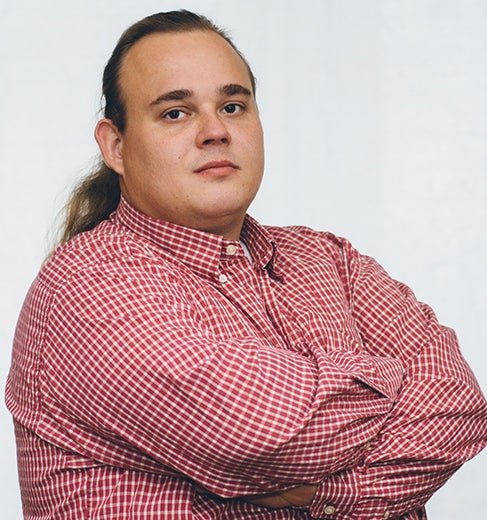
Energy Objects: Histories and Cultural Practices of Techno-Environment in Rural China
Yandong Li is a PhD Candidate in Cinema and Media Studies at the University of Washington. He is also enrolled in the graduate certificate of STSS (Science, Technology, and Society Studies) at UW.
Li’s dissertation studies the histories and contemporary cultural practices of energy, technology, and environment by interpreting the meanings assigned to mundane objects in rural China, including greenhouses, cooktops, and oil lamps. He plans to consult materials related to energy and agriculture in the Linda Hall Library’s digital collections to explore the intersection of media theory, design, material culture, and ecoculture.
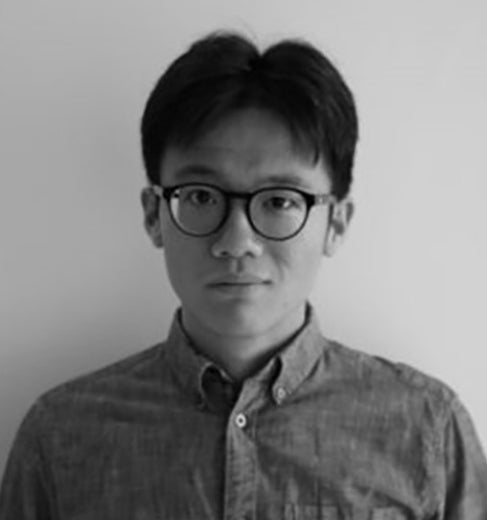
Breanna (Bree) Lohman is a PhD Candidate at the University of Toronto specializing in the history of technology, environment, and computing in Cold War North America. Her dissertation undertakes a historical re-evaluation of the Semi-Automatic Ground Environment, or SAGE, early warning and air defense infrastructure during its construction, use, and obsolescence. From 1957 to 1983, SAGE monitored North American airspace to ostensibly safeguard against nuclear attack as part of the first generation of computerized nuclear surveillance. Through an investigation of the infrastructures, economies, and ecologies of SAGE, Lohman investigates the uneven distributions of nuclear risk and investment across Cold War North America, and examines how communities negotiated, contested, and enacted nuclear (in)security within their everyday lives.
At the Linda Hall Library, Lohman will research the history of real time computing, first developed as part of Project Whirlwind, an MIT-Air Force partnership to construct a continental air defense system. She argues that the advent of computational real time inaugurated a new paradigm of information processing that synchronized digital and real events, manifesting new regimes of data-making and surveillance. Through a wide-net survey of materials relating to nuclear defense in the Library’s collections, encompassing RAND monographs and published governmental records, Lohman aims to explore the historical, political, and environmental ramifications of real time, which relied upon a strategic yet conceptually significant simplification of the “real world” to render it digitally legible. To do so, she plans to situate real time within the broader context of both the anxiety that produced the seeming need for nuclear defense, as well as the deep time concerns associated with radiation and nuclear fallout that arose in the 1950s.
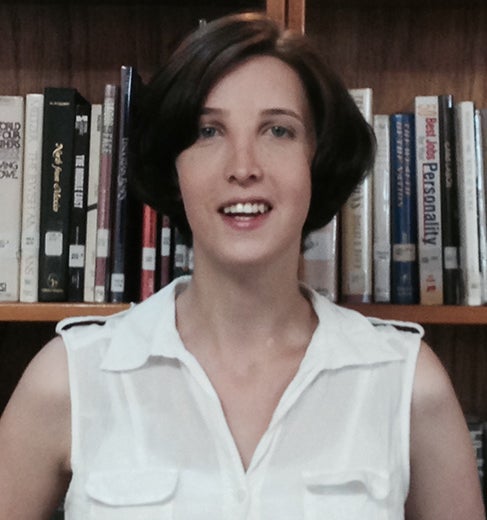
The Lure of the Machine in Early Modern Europe: From Francesco di Giorgio to Vittorio Zonca
Pamela O. Long is an independent historian of both the history of science and technology and the cultural history of late medieval and early modern Europe. Her work is centered on writings concerning artisanal and craft traditions, the technical arts, and the history of technology. In addition, she has worked extensively in Roman archives investigating the culture of engineering and building construction in sixteenth century Rome. Her books include Openness, Secrecy, Authorship: Technical Arts and the Culture of Knowledge from Antiquity to the Renaissance (2001); Artisan/Practitioners and the Rise of the New Sciences, 1400-1600 (2011); and Engineering the Eternal City: Infrastructure, Topography, and the Culture of Knowledge in Late Sixteenth-Century Rome (2018). She is an avid gardener (of native plants), a passing good cook, and painter.
The Linda Hall Library virtual fellowship will allow her to make progress on a new book project focused on images and books about machines from the late fifteenth century to the early sixteenth century. During the fellowship she will concentrate on several key works that are held by the Library, including the writings of Jacques Besson, of Guidobaldo del Monte, and of Guillaume Philandrier. She will undertake close readings and scrutiny of these often-difficult texts and their images. At the same time, she will work at understanding the ways in which they are positioned in relationship to practical life involving the use of machinery on the one hand and textual and image traditions on the other.
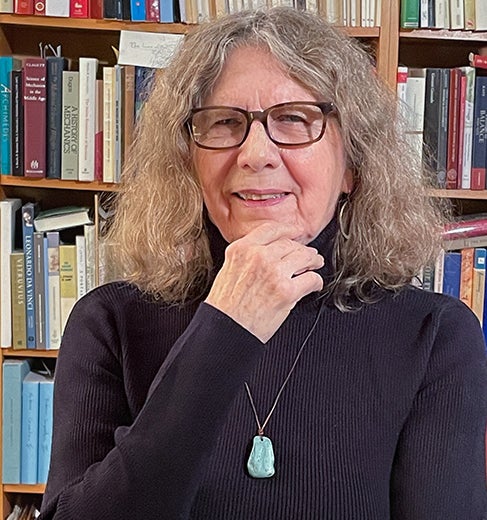
Automating Violence: A History of United States Drone Warfare
Garrett McKinnon is a Teaching Assistant Professor in the History Department at North Carolina State University, where he teaches classes focusing on United States history and military history. His current book project offers a cultural history of U.S. drone warfare across the twentieth century up to the recent past. Cultural discourses and practices proved key to the policy formations, military planning, and political economy of the American way of war's increasing turn to mechanization. The military use of drones was a significant, yet understudied, part of the larger history of U.S. machine warfare that relied on productive power to overwhelm enemies with technological means. Airpower became central to U.S. war-making during the World War eras, the Cold War, and beyond. Drones, in turn, developed into an ever-more important "asset" in the U.S. aerial arsenal before reaching a central place in present day pursuits of war.
At the Linda Hall Library, McKinnon will examine several collections relating to U.S. drone war and the growth of an international drone market in the late twentieth century. These include the research papers and conference proceedings of the North Atlantic Treaty Organization's (NATO) Advisory Group for Aerospace Research and Development (AGARD) alongside the records of the Association for Unmanned Vehicle Systems International, the American Institute of Aeronautics and Astronautics, and Britain's Royal Aeronautical Society.
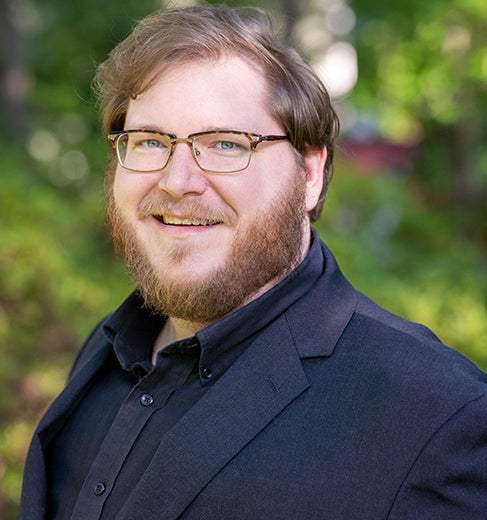
Oleksandr Okhrimenko is an independent scholar who completed a PhD in medieval history at Taras Shevchenko National University of Kyiv (Ukraine). Earlier in his career, he was an Assistant Professor at the Faculty of History, Taras Shevchenko National University of Kyiv (Ukraine, 2017–2022), an expert on the history of the Commission of the Ministry of Education and Science of Ukraine (2020–2021), and a mentor of the Invisible University for Ukraine project (Central European University, Austria, 2022–2023). He is a member of the Balkan History Association (Romania), the Early Book Society (U.S.), and the Medieval Central Europe Research Network (Hungary). Okhrimenko's scientific interests are united by medieval studies, the history of manuscripts and books, heritage studies, and the social history of music and performing arts.
His current research explores the incunable collection of the Linda Hall Library, specifically the evidence of reading (marks, ways of enlightening the text, maniculae, lines, and notes, as well as damages, fingerprints/dirt, destruction of a book, etc.) which will be compared with the same titles from the collection of Vernadskyi National Library of Ukraine. This project will track the understanding of the book as a practical instrument for knowledge, the library as a form of self-representation, and the shifting importance of scientific knowledge.
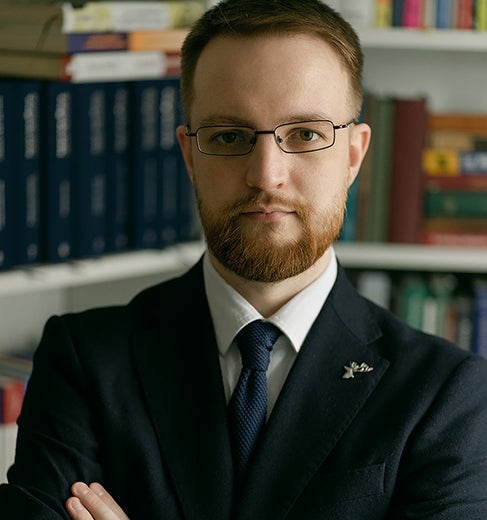
Nydia Pineda de Ávila is Assistant Professor in the Department of History at the University of California San Diego. She completed a PhD at Queen Mary University of London in 2018 and held a postdoctoral fellowship at the Instituto de Investigaciones Estéticas, Universidad Nacional Autónoma de México from 2018 to 2020. She has been a Maria Cassiet short-term fellow at the John Carter Brown Library and a Fletcher Jones fellow in the UC-Huntington Program for the Advancement of the Humanities. In 2020 she and Thomás Haddad co-curated the digital exhibition Constellations: Reimagining Celestial Histories in the Early Americas at the John Carter Brown Library. At UC San Diego, she leads the international media project American Skies: Celestial Images as Technologies of Cultural Transfer with historians of science and filmmakers in Argentina, Brazil, Chile, Colombia, Italy, and Mexico.
Pineda de Ávila works at the intersection of history of science, art history, and history of the book, focusing on the technical, political, and rhetorical function of astronomical images and instruments in a global history of science, art, and technology. Her book project, Paper Moons: The Poetics of Selenographies in the Seventeenth Century, offers the first cultural history of lunar maps in the aftermath of the dissemination of the telescope and the Galilean controversies over the appearance and nature of the Moon. At the Linda Hall Library, she will write the chapter of this work that focuses on epistemic and technical foundations of selenography by examining sixteenth- and early seventeenth-century literature on astrology, celestial navigation, surveying, and chronology.
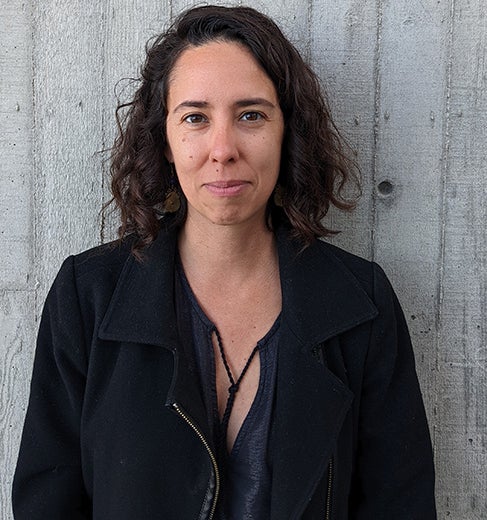
The Telegraph from Below: Labor, Race, and Gender in U.S. Telegraph Networks
Sebastian James Rose is a PhD candidate in History at the University of Greenwich and recipient of the John Charles Maynard Scholarship. He holds a BA in History from the University of Leicester and an MA in International Relations from Leiden University. Rose's work explores the intersection between technology, space, labor, and state building. His PhD research looks at the role of telegraph workers and stations in the British-run Indo-European Telegraph Department (IETD) in Iran and the Persian Gulf in the late nineteenth and early twentieth century. More broadly, his thesis attempts to understand how local infrastructural spaces, low technologies, and menial workers aided and resisted processes of imperial boundary making at the edge of empire.
At the Linda Hall Library, Rose will examine the role of telegraph workers across U.S. networks. Using the Library's extensive collection of primary source materials, he seeks to investigate public debates around labor organization, race, and gender by centering the voices of workers. By looking at specialist magazines, newspapers, and other sources held by the Library, Rose aims to complicate national histories of telegraph networks from above and complement his existing research on Britain's imperial networks. In doing so, this project begins to excavate an extensive global understanding of telegraph workers and the relationship between telegraphy and labor.
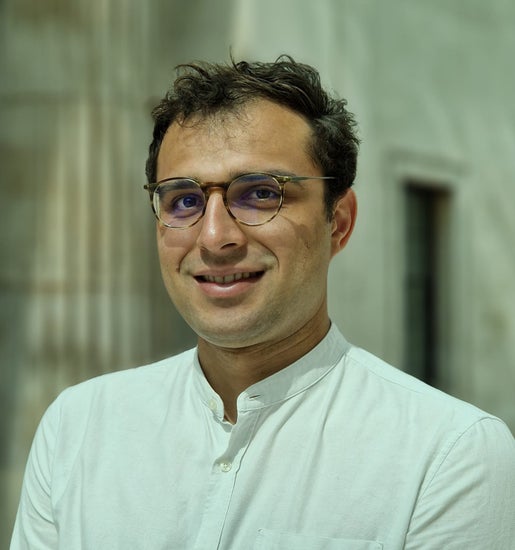
Dr. Elizabeth Savage FSA, FRHistS is Senior Lecturer in Book History and Communications, School of Advanced Study, and Head of Academic Research Engagement, Senate House Library, University of London. Her research into pre-industrial European printing techniques across text and image, especially for colour and in the fifteenth and sixteenth centuries, has won awards including the Schulman and Bullard Article Prize. Her latest book is Early Colour Printing: German Renaissance Woodcuts at the British Museum (2021), and she is co-editor of Printing Colour 1400-1700 (2015), Printing Colour 1700–1830 (forthcoming 2023), and Printing Things (forthcoming 2024). She regularly curates and contributes to exhibitions, including at the British Museum and Musée du Louvre. She teaches at London Rare Books School.
At the Linda Hall Library, Savage will undertake a virtual fellowship to complete a monograph tentatively entitled Colour Printmaking and the Transformation of Visual Information in Early Modern Germany, 1476–c.1600. In the last ten years, scholarship has started to acknowledge that the history of printing was not in black and white; however, the starting point has been overlooked. In the incunable period, or printing in the late 1400s, a number of printers developed enormously varied and innovative methods to communicate especially scientific information with printed colour. Colour printing techniques in the late 1400s have been overlooked partially because they are so unusual. Printing is generally considered too modern for Medieval Studies, while the 1400s are generally considered too early to be "early modern"; and because this material tends to be imagery printed books, which falls between art history and bibliography.
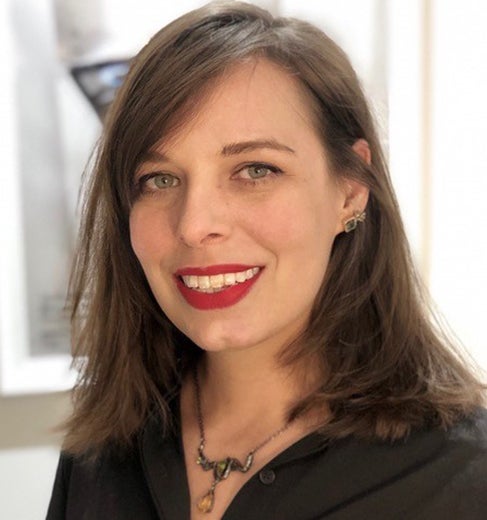
Charged Currents: Electric Power in the Caribbean
Chelsea Schields is Associate Professor of History at the University of California, Irvine. Her research spans the histories of sexuality, energy, and empire in the Caribbean and Europe. She is the author of Offshore Attachments: Oil and Intimacy in the Caribbean (UC Press, 2023) and co-editor with Dagmar Herzog of The Routledge Companion to Sexuality and Colonialism (Routledge, 2021).
As a fellow at the Linda Hall Library, Schields will begin research on a new monographic project titled Charged Currents: Electric Power in the Caribbean. Located at the intersection of histories of energy, technology, and the environment, this project traces the electrification of the region from sporadic speculative investment in the 1880s to the climate and debt crises imperiling energy provision in the present.
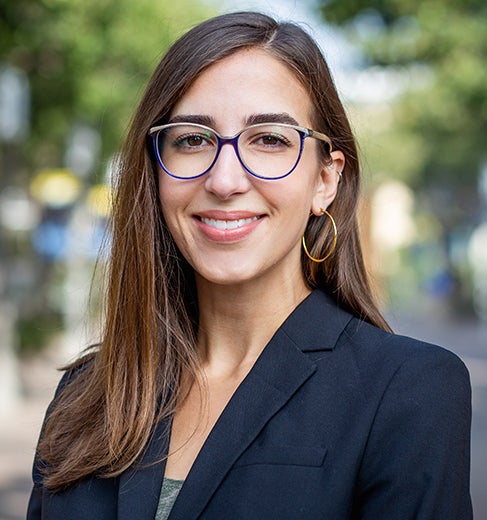
Conceiving the Durability of the "Energy-Irrigation Nexus" in Indian Agriculture, 1910s-1970s
Ritam Sengupta is a Postdoctoral Fellow at Leibniz-Zentrum Moderner Orient (ZMO), Berlin, working on an ERC-funded project on the histories of agrarian temporalities in South Asia. His doctoral thesis examined the history of the arrival of electricity as a new technology and form of energy in colonial India. His academic work and publications have dealt broadly with questions of energy and data infrastructure both from a historical and a sociological perspective.
Sengupta's proposed project at the Linda Hall Library will study the conceptions of temporality embedded within the making of the "energy-irrigation nexus" in Indian agriculture over the twentieth century. This "nexus" refers to the widespread use of tubewells, energized mostly by electricity and diesel, to draw groundwater for irrigation. Existing scholarship identifies the tubewell as an effective protagonist in India's "Green Revolution" campaign of the late 1960s. Sengupta's project proposes an enquiry into the making of the energy-irrigation nexus across a period much longer than the conjuncture of the Green Revolution. In doing so, it investigates the limiting conditions that marked the formation of this "nexus," which might be lost to existing innovation- and growth-centred accounts of technological change in Indian agriculture. He asks how, since the early twentieth century, colonial and postcolonial projects of expanding groundwater use in farming proposed varying durations over which groundwater reserves could be used. What extant social and ecological temporalities of groundwater use, as well as soil use, were superseded or contested as Indian agriculture moved from wells to tubewells, even as underground "resources" increasingly came within the ambit of sophisticated calculations and surveys? Sengupta also enquires how emerging constraints within the larger scale deployment of inorganic energy in this extraction were encountered and dealt with.
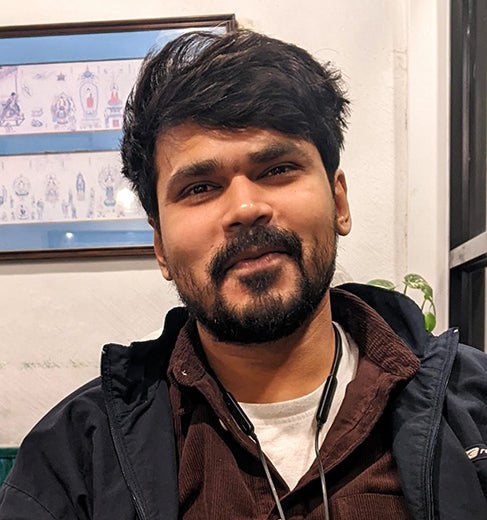
The Radiance of Tlatelolco: Politics, Culture, and Nuclear Technology in Latin America, 1937-1994
Peter Soland is a scholar of Latin American History specializing in modern Mexico and Latin America. He earned his doctorate in History from the University of Arizona in 2016 and subsequently accepted a position as a Postdoctoral Fellow with the Center for Southwest Studies at Fort Lewis College in Durango, CO, for 2016–17. He served as an Assistant Professor of Latin American History at Southeast Missouri State University in Cape Girardeau, MO and the Coordinator for the University’s Latin American Studies minor from Fall 2019 to Spring 2023. He is excited to start a new position beginning the Fall 2023 semester as an Assistant Professor in the Department of History, Humanities, and Languages at the University of Houston-Downtown in Houston, Texas.
Soland’s research projects explore topics related to the history of technology, culture, politics, and society. His first book, Mexican Icarus: Aviation and the Modernization of Mexican Identity, is in production with the University of Pittsburgh Press (May 2023). His current project, “The Radiance of Tlatelolco: Politics, Culture, and Nuclear Technology in Latin America, 1938–1994,” examines the history of atomic science and nuclear development in the region, with particularly close attention to Mexico and Argentina. Soland is delighted to join the 2023–24 fellowship cohort at the Linda Hall Library. He was also named as an Arizona Historical Society Research Fellow for 2023.
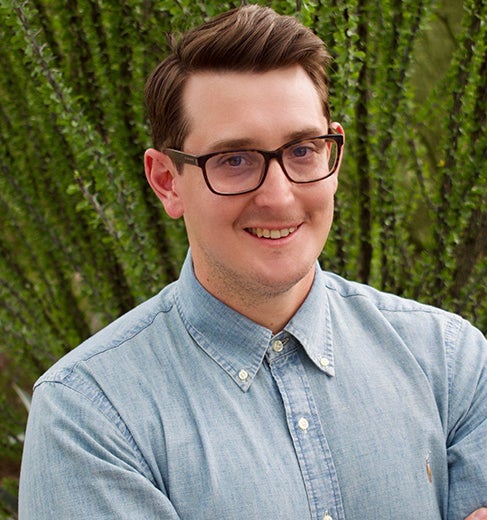
Inventing Citizens: Race, Gender, and Patents in United States History
Kara W. Swanson, JD, PhD, is Professor of Law and Affiliate Professor of History at Northeastern University, Boston, MA. Her scholarship examines historical intersections among law, science, medicine, and technology in the United States, with the goal of exploring the boundaries of citizenship, property, and intellectual property in law and society. Swanson's research has been supported by the Mellon Foundation, the National Science Foundation, the National Endowment for the Humanities, and the Lemelson Center for the Study of Invention and Innovation, where she held the Arthur Molella Distinguished Fellowship. Her scholarship, published in both peer-reviewed journals and law reviews, has focused on the regulation of reproduction, markets in body products, the U.S. patent system, and marginalized inventors. Her previous publications have earned awards from the History of Science Society, the Society for the History of Technology, and the Association of American Law Schools, as well as the John Hope Franklin Prize from the Law and Society Association. Her first book, Banking on the Body: The Market in Blood, Milk and Sperm in Modern America (Harvard University Press, 2014), is a medicolegal history of property in the human body, as understood through the twentieth century history of bankable body products.
As a Linda Hall fellow, Swanson will be conducting research about inventing and inventors for her current book-in-progress, tentatively titled Inventing Citizens: Race, Gender, and the United States Patent System. The book will explore the relationship between the celebration of American inventiveness and civil rights across U.S. history.
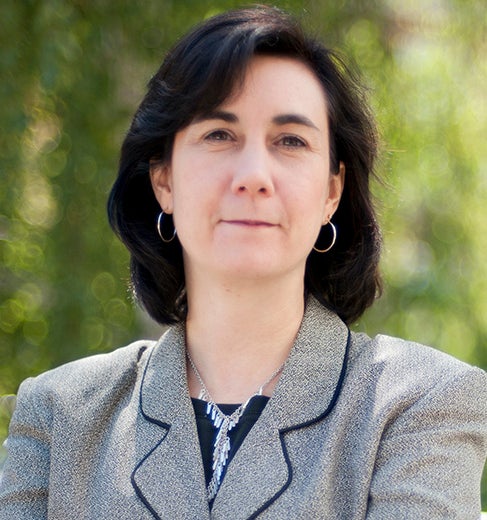
The History of Medical Police and its Transformation into Social Hygiene and Public Health
Dr. Yurii Vasyliev is Associate Professor at the Department of Public Health at the AR Medical Institute, Sumy State University (Ukraine). His research project considers the emergence of the "medical police" and social hygiene movements in Ukraine. The term "medical police" emerged during the eighteenth century in the German-speaking states to refer to various forms of state intervention in the field of health care. By the early nineteenth century, the "medical police" had transformed into a new "social hygiene" movement, which spread rapidly in German-speaking countries, while English-speaking countries adopted a different term: public health. Initially, the "medical police" designation was used in Ukraine, but at the beginning of the twentieth century, it became known as social hygiene. Today, Ukrainian scientists have embraced the term "public health."
The purpose of Vasyliev's work at the Linda Hall Library and Clendening History of Medicine Library will be to collect materials that will allow him to articulate the features of these medical reform movements. It is important to compare and contrast the development of medical police, social hygiene, and public health initiatives in Ukraine, as well as in English-speaking countries.
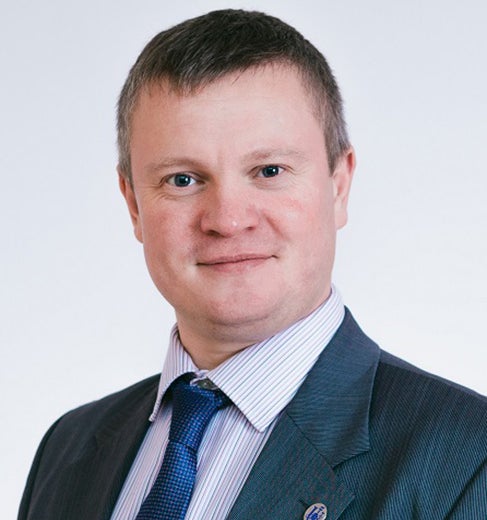
Mathematical Cosmography to the Service of Global Empires
Helbert E. Velilla Jiménez is a doctoral candidate in Philosophy at the École normale supérieure-Paris-Université Paris PSL and the University of Salamanca. He has an MA in education in natural sciences and a BA in philosophy. Prior to his residential fellowship at the Linda Hall Library, he was a Deutscher Akademischer Austauschdienst (DAAD) visiting research fellow at the Ruhr-Universität Bochum in Germany. Velilla Jiménez's research focuses on the crossroads between colonial history and history and philosophy of science. A central theme of his research explores the development of mathematical cosmography within the framework of the Spanish colonization of the New World. Velilla Jiménez's research has been published in various journals, including Endeavour, the History and Philosophy of the Life Sciences (HPLS), and the Philosophy Studies Journal.
He is working on a project proposing that the solutions to the problem of longitude and magnetic variation, as well as the elaboration of the Padrón Real by the Spanish crown, were linked to political debates that promoted mathematical concerns. However, these mathematical concerns were more related to imperial projects than speculative debates. He plans to give an overview of how a political issue, such as the Treaty of Tordesillas, became a cosmographic problem. At the Linda Hall Library, he will use collections related to geography, astronomy, mathematics, and books on navigation that were crucial in theoretically supporting cosmography and improving navigational practices. He aims to demonstrate that discussions of magnetic variation and longitude led to the mathematization of cosmography in the context of the Spanish colonization period.
